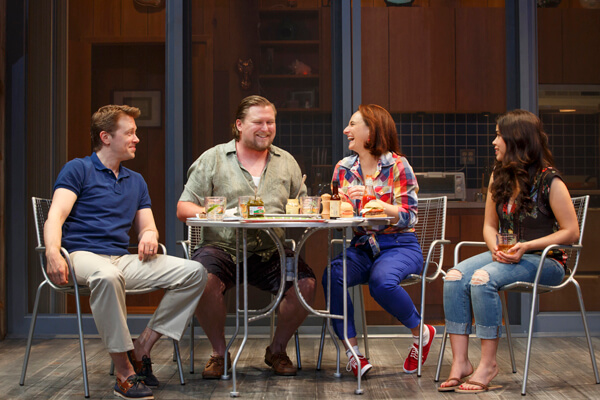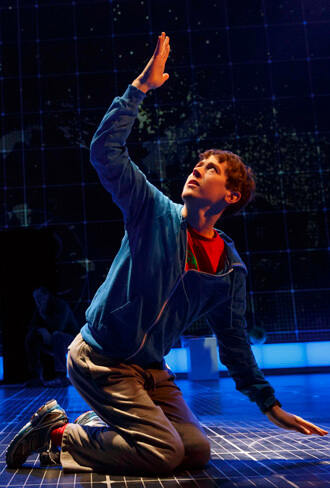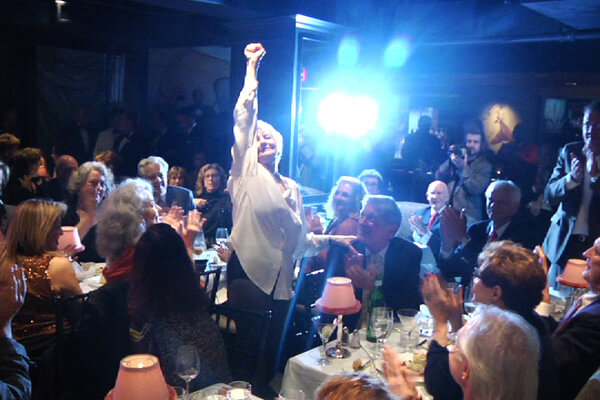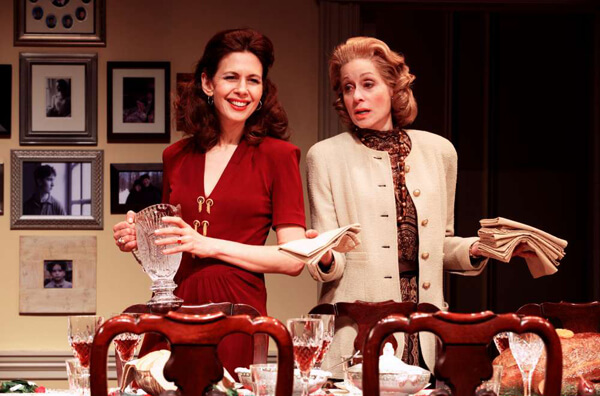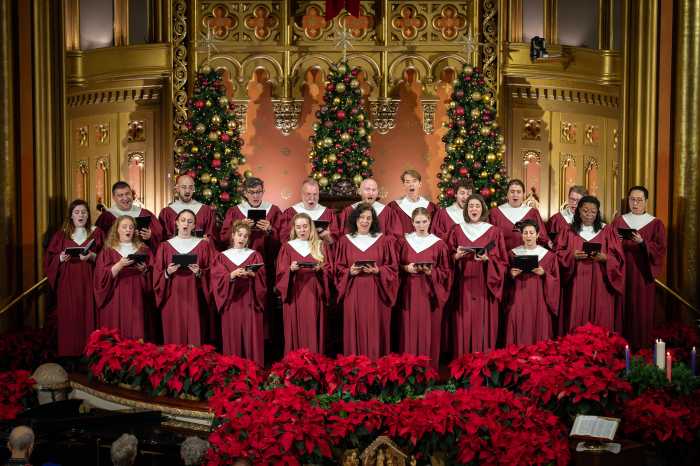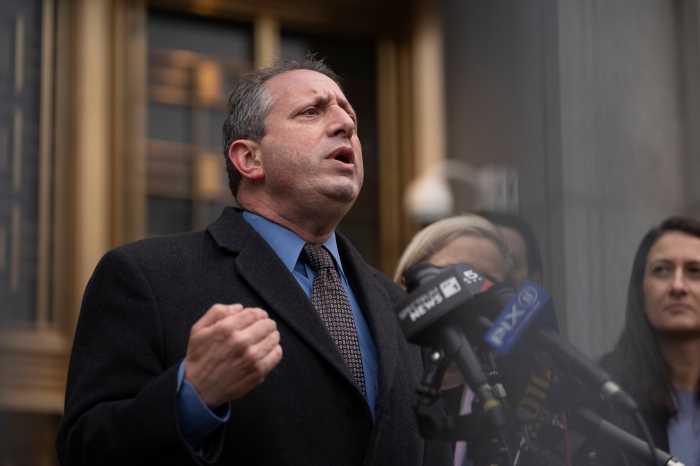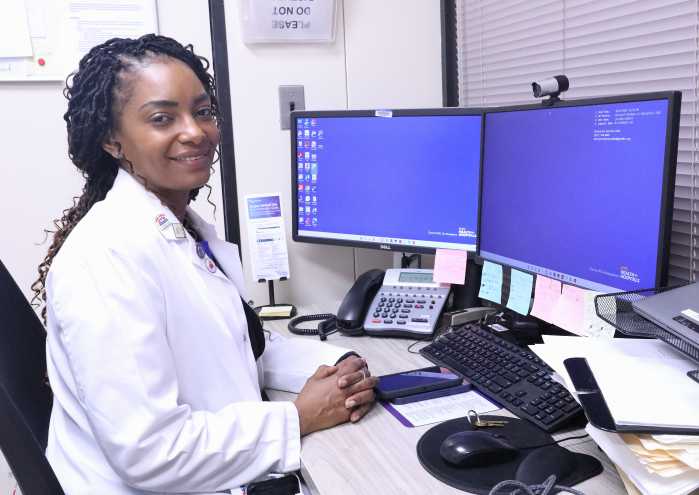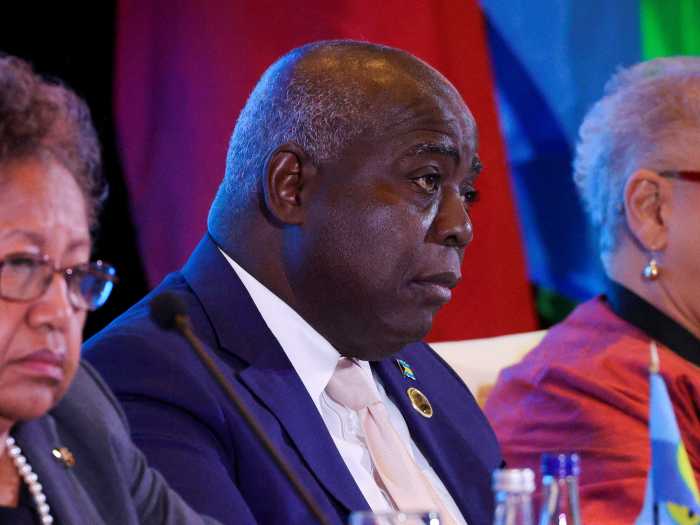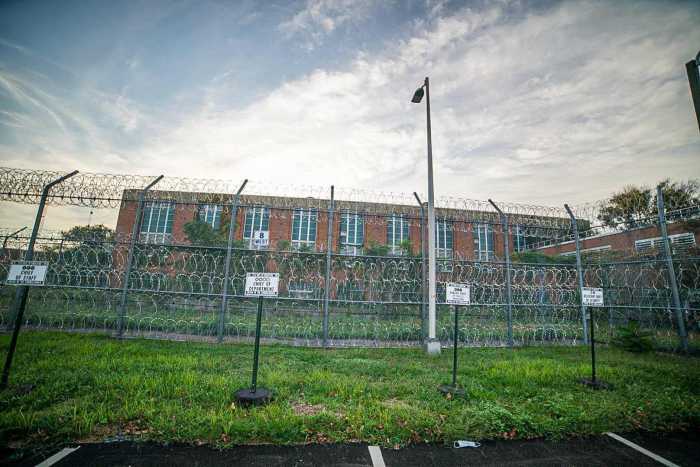When the theater artist Taylor Mac left me a voicemail to set up our recent interview, my phone’s voice recognition program sent me a text of the message that started out, “Hi, it’s Anna Mike again.” Well, no, it wasn’t. Still, knowing Mac and his penchant for embracing the unexpected, I could almost imagine a quick whipping up of a whole evening’s entertainment about “Anna Mike,” her griefs, her triumphs, her nights, her days, and her sleazy, sleazy ways.
At 45, Mac has become one of those rare artists whose audience members tend to internalize his specifically celebratory yet serious queer worldview. Once you’ve drunk the gay grape Kool-Aid, you’re in. It’s sort of like being bitten by a bald werewolf in frilly drag: you’re going to start howling Judy Garland tunes sooner or later.
Following the triumph deluxe of Mac and his collaborator, musical director/ arranger Matt Ray, with “A 24-Decade History of Popular Music” — in development beginning in 2012 and culminating in a one-time-only 24-hour performance in Brooklyn in 2016 — this Jack-and-Jill-of-all-trades theatrical received a Genius Grant from the MacArthur Foundation and was short-listed for a Pulitzer.
But now, Mac’s biggest, most high-profile work yet, “Gary: A Sequel To Titus Andronicus” has opened on Broadway. In a largely favorable review, The New York Times called it “the unlikeliest bird to land on Broadway in many a year.” Mac is a pretty unlikely bird himself.
His quintessentially queer world tends to be kinda amped up. Things are “super-important” or “super-inspiring.” His own gay coming of age is marked with his coming out at the AIDS Walk in San Francisco in his native California in 1987. That was 32 years ago, and 18 years before that was Stonewall in 1969.
“It’s one of our first historic events,” Mac told Gay City News a few days before the “Gary” opening. “One that queers can claim as their own, where the queers were so loud they couldn’t be ignored.”
Of the upcoming WorldPride and Stonewall 50 anniversary, he said, “Well, I love a gathering. I love it when a community gets together and celebrates a milestone or just creates ritual for themselves. Queers don’t tend to have had rituals of queerness as children, ones not dictated by a heterosexual perspective. So, anniversaries like this are super-important, they’re our holidays.”
“I’ll going to be working a comfort tent in Central Park, welcoming people, and hanging out with a bunch of Radical Faeries at an alternative event to the big parade,” Mac said of his plans to join the separate Reclaim Pride march and rally on Pride Sunday. “We can’t let Macy’s take over the parade and use our holiday as an advertising opportunity.”
“Gary” is a kind of reclaiming as well. The play grew out of a commission to adapt Shakespeare’s “Titus Andronicus” for the Oregon Shakespeare Festival.
Of Shakespeare, Mac said, “I love him. He was an incredible writer. It’s unbelievable how gifted he was. I find the combination of philosophy and poetry at the same time to be liberating. It’s super-inspiring. I love to say the language and I like to act in the plays, but the things I struggle with are how the politics of so many of them are about the rebelling again the status quo, but then tend to shore it up.”
And so in “Gary,” Mac has taken three very minor characters — a clown, a midwife and a maid, one of them only mentioned in passing in the “Titus” text — and explores imaginatively what might have happened to them after the wholesale carnage that famously ends what may have been Shakespeare’s first hit, in 1594.
“I’m more interested in telling stories about people who have less power in their lives,” he explained.
How queer is the character of the clown, Gary, played by Nathan Lane?
“He’s queer because he’s my version of him,” Mac said. “He’s very queer. Everything I write is going to be queer.”
Earlier queer writers, like Tennessee Williams, he said, wrote coded texts about ostensibly heterosexual characters,
“They’re so wonderful because there’s just a bunch of queers on the stage,” Mac said.
He didn’t know Lane before working on “Gary,” and said, “It’s kinda fun to work with someone who’s been a clown most of his career. Without speaking for him, I think he’s been trying to branch out a bit from his clowning to his desire to do Eugene O’Neill and Tony Kushner and Beckett. That mirrors the character of the clown who wants to be more. That parallel has been really fascinating to watch.”
Does the human decimation in “Gary” represent the community’s losses from AIDS?
“That’s always in the conversation in my plays,” Mac explained. “I’m a child of the AIDS epidemic. I don’t know how I could make plays that aren’t about that. ‘A 24-Decade History of Popular Music’ was about AIDS and about communities being torn apart, but I can’t say that I consciously went after that in this show.”
GARY: A SEQUEL TO TITUS ANDRONICUS | Booth Theatre, 222 45th St.| Through Aug. 4: Tue., Thu. at 7 p.m.; Wed., Fri.-Sat. at 8 p.m.; Wed., Sat. at 2 p.m.; Sun. at 3 p.m. | $39-$275 at telecharge.com



